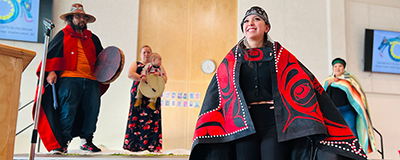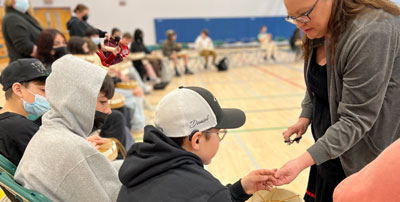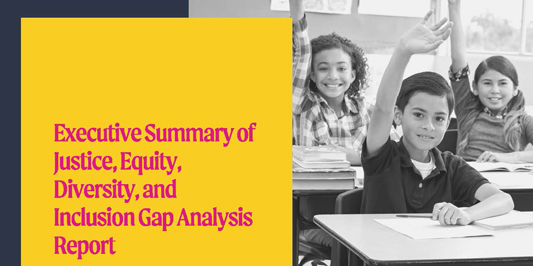Anti-Indigenous racism shows itself in the ongoing discrimination, negative stereotyping, and injustices experienced by Indigenous Peoples in Canada. It includes ideas and practices that establish, maintain and perpetuate power imbalances, systemic barriers, and inequitable outcomes … which often stem from the legacy of colonial policies and practices in Canada.

But what does that mean? Where does that come from?
Systemic anti-Indigenous racism is influenced by things like federal policies, like the Indian Act. It can be seen in the generational trauma created by the residential school system. And we can measure the impact of this racism in many ways, such as the overrepresentation of Indigenous peoples in provincial criminal justice and child welfare systems. We also see it as we measure and work to address the inequitable outcomes in education, reported well-being, and in health.*
(*Outlined here: https://www.ontario.ca/document/data-standards-identification-and-monitoring-systemic-racism/glossary on October 22, 2022)
As we engage in this work, it’s important that we have a clear understanding and definition about what we are trying to overcome, change or dismantle. Anti-Indigenous Racism shows up in our resources, in our language and in our spaces. Once we are aware of it, we must name it, notice it and combat it whenever it shows up.
We also need to be open on our learning journey to the opportunities. As much as we have a responsibility to look for and remove the barriers we know people face, we also need to learn from and celebrate the cultural teachings that are possible … to amplify both the battles against racism and the celebrations of culture, storytelling and sharing lived experiences.
Free Storybook Resources
Below you’ll find free storybooks for you and your family to use at home. If you click on them, you’ll be taken to a free audio-book or read aloud version, perfect for storytime.
Elementary and Middle resources
Other resources
We’ve also included some more novels and stories to better educate yourself and your family about the history, culture, and issues facing Indigenous people across Canada. You can access these books through your local community or school library, or possibly at local bookstores.
Elementary and Middle resources
| Title | Author | Age range | |
 | Shi-shi-etko | Nicola I. Campbell | 5-7 years old |
 | Ancestor Approved | Cynthia Leitich Smith | 8-12 years old |
 | The Barren Grounds | David Robertson | 10-12 years old |
 | Borders | Thomas King | 10 years old+ |
 | Braiding Sweetgrass for Young Adults | Monique Gray Smith | 12 years old+ |
Secondary and Mature resources
| Title | Author | Age range | |
 | 21 Things you may not Know About the Indian Act | Bob Joseph | Mature |

| All our relations | Tanya Talaga | Mature |
 | From the Ashes | Jesse Thistle | Mature |
 | Indigenous Relations | Bob Joseph and Cynthia F. Joseph | Mature |
 | The Inconvenient Indian | Thomas King | Mature |

| This Place – 150 Years Retold | Kateri Akiwenzie-Dame, Sonny Assu, Brandon Mitchell, Rachel Qitsualik-Tinsley, Sean Qitsualik-Tinsley, David A. Robertson, Niigaanwewidam James Sinclair, Jen Storm, Richard Van Camp, Katherena Vermette, Chelsea Vowel | Mature |
Interested in continuing your learning? Use the navigation at the top of the page (in the left bar for desktop platforms, or the “Section menu” under the banner for mobile) to explore a new topic, or use the below button to get to the next page in the DEIA Parent Toolkit







